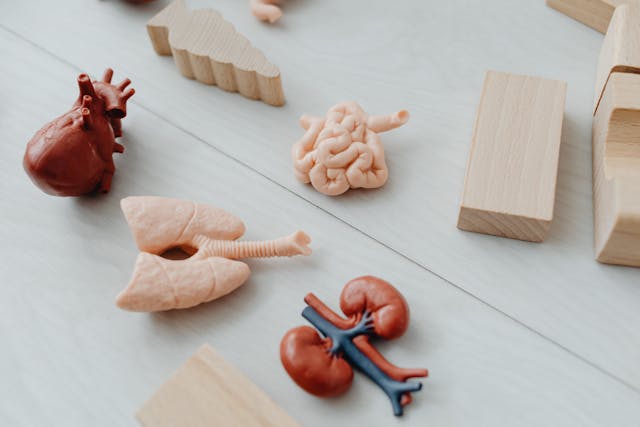Your kidneys work like natural filters in your body. They remove waste and balance fluids all day. This helps everything run smoothly. But if you don’t care for them, problems can arise. The good thing is, protecting them isn’t hard. You don’t need big lifestyle changes. Small habits help a lot. Drink enough water and eat good food. Also, be careful with medicines like Dulcolax Chewables. They can affect kidney health. This guide will share simple ways to keep your kidneys healthy.
Stay Hydrated, But Don’t Overdo It
Water is very important for the kidneys. It helps remove toxins and stops kidney stones. If you don’t drink enough, your kidneys need to work harder. This can cause infections and other problems later. Try to drink at least eight glasses daily. But you may need more or less. It depends on weather, activity, and your body’s needs.
However, drinking excessive amounts of water isn’t always beneficial. Overhydration can dilute essential electrolytes and strain the kidneys unnecessarily. Instead, listen to your body—if your urine is pale yellow, you’re likely well-hydrated. If it’s dark, it may be a sign you need to drink more water.
Maintain A Kidney-Friendly Diet
What you eat plays a significant role in kidney health. A balanced diet of fresh fruits, vegetables, whole grains, and lean proteins can support optimal kidney function. Reducing salt intake is particularly important, as excessive sodium causes fluid retention and increases blood pressure, putting extra stress on the kidneys.
Additionally, certain foods can help keep your kidneys functioning efficiently. Berries, leafy greens, and apples contain antioxidants that reduce inflammation, while foods like fish and nuts provide essential omega-3 fatty acids. On the other hand, processed foods, red meat, and excessive dairy can burden the kidneys and should be consumed in moderation.
Exercise Regularly, But Avoid Overexertion
Physical activity improves circulation, helps maintain a healthy weight, and lowers the risk of diabetes and high blood pressure—two leading causes of kidney disease. A simple 30-minute walk, yoga session, or light cardio workout can support kidney function and overall well-being.
However, overexertion can release excess muscle breakdown products into the bloodstream, which may overwhelm the kidneys. Finding a balanced routine that keeps you active without pushing your body too hard is key to long-term kidney health.
Be Cautious With Over-The-Counter Medications
Many people rely on over-the-counter pain relievers for headaches, muscle aches, or digestive issues, but frequent use of certain medications can harm the kidneys. Nonsteroidal anti-inflammatory drugs (NSAIDs), such as ibuprofen and naproxen, can reduce blood flow to the kidneys, leading to potential damage over time.
Laxatives and digestive aids should also be used cautiously. While products like Dulcolax Chewables can temporarily relieve constipation, overuse of laxatives can disrupt electrolyte balance and strain the kidneys. Always follow recommended dosages and consult a doctor before using these medications regularly.
Manage Blood Sugar And Blood Pressure Levels
Diabetes and hypertension are two of the biggest risk factors for kidney disease. When blood sugar levels are consistently high, excess glucose can damage the tiny blood vessels in the kidneys.
Regular checkups, a balanced diet, and an active lifestyle can help regulate both conditions. Reducing processed sugar intake, consuming fiber-rich foods, and engaging in stress-reducing activities like meditation or deep breathing exercises can all contribute to healthier blood pressure and blood sugar levels.
Get Enough Sleep And Manage Stress
Your kidneys, like the rest of your body, benefit from proper rest and recovery. Poor sleep quality has been linked to increased kidney stress and a higher risk of kidney disease. Aim for 7-9 hours of sleep each night to allow your body to repair itself and maintain a healthy balance of fluids and hormones.
Chronic stress also negatively affects kidney function by increasing blood pressure and inflammation. Finding ways to manage stress—whether through meditation, exercise, journaling, or hobbies—can improve overall health and help protect your kidneys in the long run.
Limit Alcohol And Avoid Smoking
When you drink too much alcohol, your body gets dehydrated, forcing your kidneys to work overtime to remove toxins. Over time, this extra strain can contribute to high blood pressure—one of the leading causes of kidney disease.
Smoking, on the other hand, makes things even worse by narrowing your blood vessels. This reduces blood flow to your kidneys, making it harder for them to function correctly. Cutting back on alcohol and quitting smoking can have a huge impact on your kidney health, helping them function better and keeping you healthier in the long run.
Taking care of your kidneys doesn’t have to be complicated. Small, everyday habits can go a long way in keeping them in good shape. Drinking plenty of water, eating a balanced diet, staying active, and being mindful of medications all help reduce unnecessary strain on your kidneys. By making these simple lifestyle changes, you’ll give your kidneys the support they need to stay strong and healthy for years to come.
